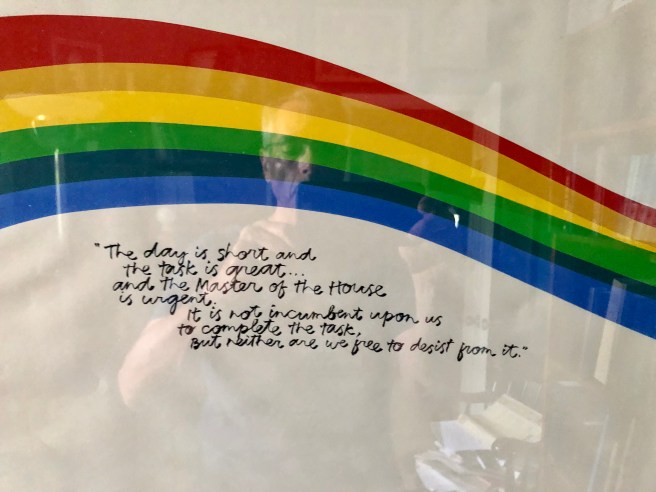Today, the Ninth day of the Hebrew month of Av, Tisha B’Av, is a day when traditional Jews fast in memory of the magnificent Temples of Jerusalem which were each destroyed, the first by the Babylonians in 586 BCE and the Second by the Romans in 70 CE. The day also is a solemn one in memory of other historical tragedies associated with that date. For example, it is said that the beginning of the first Crusade in 1095, a time of persecution and slaughter of the Jews of Europe and in 1290 the expulsion of Jews from England both took place on that date. Tisha B’Av also coincides with the expulsion of Jews from Spain in 1492 and the outbreak of World War I in 1914.
The meaning of this day of tragedies does not rank high in the consciousness of most Reform Jews, and that raises the question of what might we make of Tisha B’Av today
The destruction of the two Temples and the exile of Jews from our sacred land that followed, were occasions of death and suffering, and sorrow is appropriate. Certainly all the other historical tragedies associated with that date are important to remember too.
On the other hand, the centrality of the Temple in Jewish life ended abruptly with its final destruction, and there is no merit in reviving its traditions anew. Much of the Temple’s centrality revolved around its role as a place for animal sacrifice as a sign of repentance, thanksgiving or celebration. After the destruction and dispersion, though, the Jewish people found other ways worship built them around their synagogues and homes. Rabbis rose up from the community instead of priests and much of this has served us well as we wandered through the world. I know of no non-Orthodox Jews who wish to see a reconstructed Temple, a reinstitution of animal sacrifice, and a return of control over Jewish life to a hereditary priestly class.
While a tragedy of the time, the destruction of the Temple liberated Judaism to become what we treasure today, a religion based on the study of Torah, of prayer and of acts of kindness and compassion: a religion and a way of life that reaches deeply into everything we do.
The very vibrancy and strength of the Jewish people over the centuries attests to the wisdom on what we have become and not what we once were. It may sound odd, but in that sense Tisha B’Av, can be seen as both an occasion of hope and optimism as well as one of remembrance and sorrow.
It is left to us to reconcile the remembrance of genuine tragedy with the possibilities for the growth and development of the Judaism that has been passed down to us. In that context I observe a fast on Tisha B’Av until mid day. During that time I study the traditional text for the day, the biblical book of Lamentations.
At one O’clock I break my fast with a mid day meal grateful for the Judaism that has been bequeathed to us over the years, a Judaism that no longer slaughters animals and sprinkles their blood as a sign of gratitude or as a petition to God. I celebrate the fact that a Judaism without the Temple and its hereditary priestly class has been replaced by a Judaism we can all access and immerse ourselves in while we absorb the lessons our people gleaned over the centuries of wandering and before our return: that each of us should use our individual talents in our own way to make the world a better place.
Tisha B’Av for me is also the day when I begin preparing for the period of introspection culminating in the rituals of Rosh Hashanah and Yom Kippur. Impetus for beginning the process of repentance comes from the middle of the book of Lamentations.
“Let us search and examine our ways and return to he Eternal One!” (Lamentations 3:40)
This year, with the Covid-19 pandemic ravaging our world as we know it, Tisha B’ Av seems more real to me than ever in my lifetime. We are suffering from fear, from isolation. We cannot celebrate our joys, and we cannot mourn our sorrows with those we love.
But just as the horrific destruction of the temple allowed Jewish life to emerge int a future with new and better ways to relate to God and to each other, so too will this pandemic pass. When it does I pray we emerge into a future with greater appreciation of our many blessings and a greater consciousness of our role as stewards of god’s creation that impulses to redouble our efforts to protect our fragile environment.
For Reform and Progressive Jews, then, Tisha B’Av can be both a day of mourning and a day of joy. We mourn for the destruction of the temple, but we rejoice that we have developed a strong, resilient means of surviving as Jews.
Mourning the tragedies of the past and the present we begin our annual process of intense self-examination. May we have the courage and the strength to search and examine our ways, strive to make our actions consistent with the will of the Almighty, and face the future with hope and courage!


